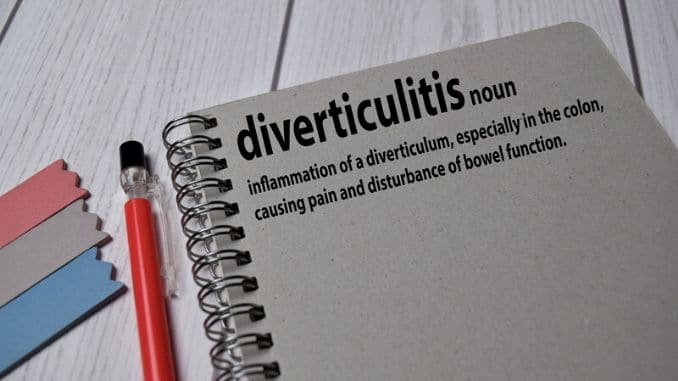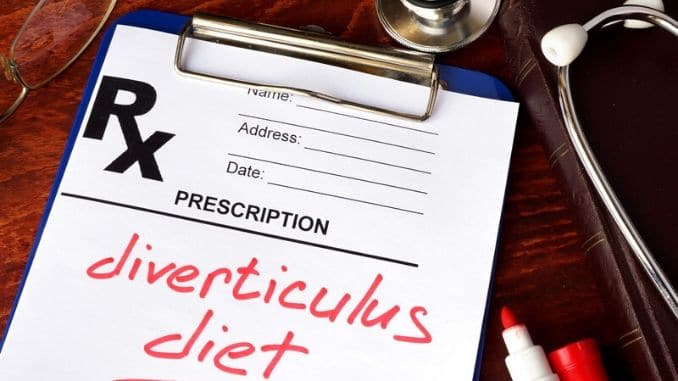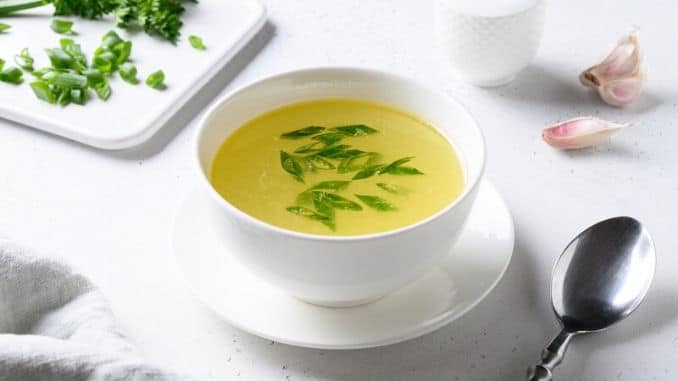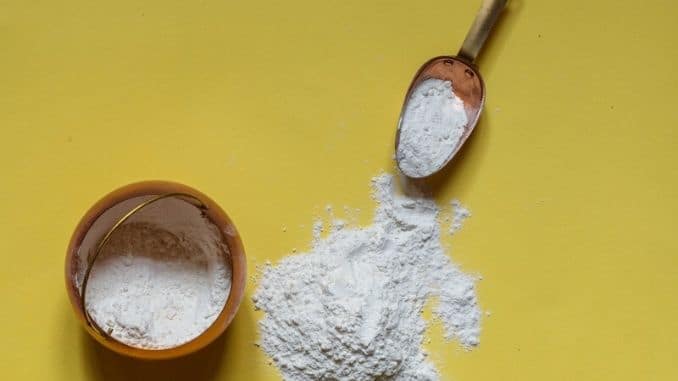
Diverticulitis is an infection or inflammation of pouches that can form in your intestines. These pouches are called diverticula. Diverticula usually develop when naturally weak places in your colon give way under pressure. This causes marble-sized pouches to protrude through the colon wall. These pouches can show up anywhere in your intestines but generally aren’t harmful.
Because the exact root cause of diverticulitis is unknown, there are no foods that are known to ease the symptoms of this condition, especially during flare-ups.

Connection of Fiber to Diverticulitis:
Fiber, or plant material, serves an important role in the digestive process by softening the stool and helping it move more smoothly through the colon. A lack of fiber can cause constipation, which makes stools harder and more difficult to pass, putting stress on the muscles of the colon. Because diverticula typically form in areas where the digestive muscles are strained or weakened, constipation can likely lead to the development of diverticula.
Because constipation causes pressure to build up in the colon, it may also lead to inflammation or infection of diverticula that are already present in the colon, causing diverticulitis.
While a diet high in fiber may help prevent diverticulosis and thus diverticulitis, a diet low in fiber may help reduce GI discomfort during flare-ups of diverticulitis by reducing the frequency of stools.
However, you may want to consider minimizing the consumption of certain foods. During acute flare-ups, consume a diet of only clear liquids for a few days.
Examples of foods allowed on a ‘clear liquid’ diet include:
- Broth
- Fruit juices without pulp, such as apple juice
- Ice chips
- Ice pops without bits of fruit or fruit pulp
- Gelatin
- Water
- Tea or coffee without cream
As you start feeling better, your doctor will recommend that you slowly add low-fiber foods.
Examples of low-fiber foods include:
- Canned or cooked fruits without skin or seeds
- Canned or cooked vegetables such as green beans, carrots, and potatoes (without the skin)
- Eggs, fish, and poultry
- Refined white bread
- Fruit and vegetable juice with no pulp
- Low-fiber cereals
- Milk, yogurt, and cheese
- White rice, pasta, and noodles
Triggers:
There are no specific foods that are known to trigger diverticulitis, but it is believed that a low-fiber, high-animal-fat diet may increase your risk.
Foods to avoid during flare-ups:
If you have diverticulitis and are allergic to wheat or are wheat intolerant, you may also need to avoid flours made from barley and rye. Brown rice flour is higher in fiber than refined white rice flour and is a good choice once you can eat high-fiber foods.
Almond and coconut flour are not just sticky, they are also dry. Much of what originally surrounded the pulp (which we call flour) has been stripped away, including the naturally occurring fats found in almonds or coconut meat.
Almond flour is also difficult to digest. Like other flours, almonds can ferment in the digestive tract, leading to discomfort and inflammation.
Coconut flour is high in fiber and absorbs a great deal of moisture. The fiber in coconut flour leaves residue behind for microbes in the intestine to feed on. This can make any infection in the gut worse. It can also inflame the lining of the gut and contribute to constipation. With that being said, a person who suffers from diverticulitis is advised to avoid almond and coconut flour.
As with any source of pain or infection, it is best to consult with your physician prior to making any changes to your diet. As well, a nutritionist may offer additional suggestions for foods to avoid to minimize your discomfort. In the meantime, eating more fiber and increasing your fluid intake can help diverticulitis from occurring.
Did you know that your diet can be the root of many of your health concerns? For more information, click here.




